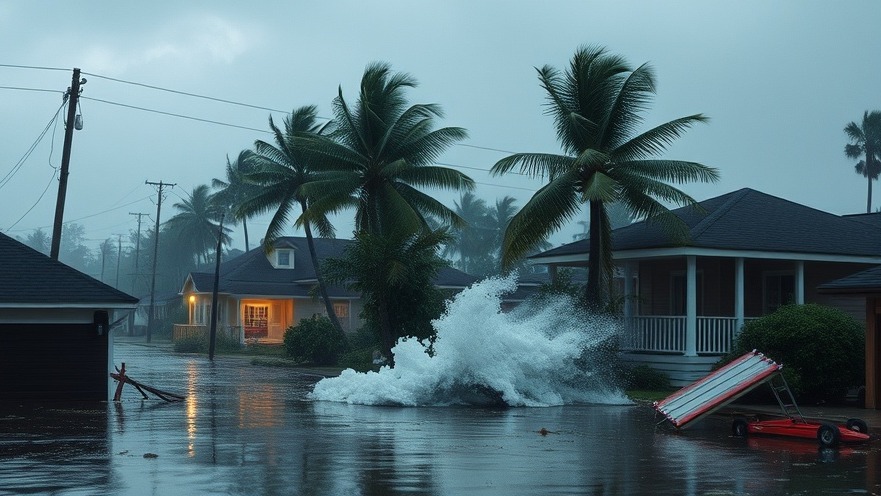
Remembering the Impact of Hurricane Katrina on a Generation
On August 29, 2005, Hurricane Katrina unleashed its catastrophic force on the Gulf Coast, profoundly altering the lives of countless individuals and the fabric of New Orleans. As Ryan Clark and Leonard Fournette revisit their experiences during this harrowing time, their reflections illuminate not just personal memories but also the broader implications of the disaster for football fans and athletes alike.
In 'Ryan Clark and Leonard Fournette recount Hurricane Katrina,' the discussion delves into the intense and personal experiences of those affected, exploring key insights that sparked deeper analysis on our end.
The Unfolding Disaster: A Personal Account
Clark recalls his early awareness of the hurricane, fueled by his father’s work with the Levy District, which made him the family's information lifeline. For many families in New Orleans, evacuation was a complex challenge. A typical answer to the question of why people remained in the city is simply that relatives often lived nearby, or because owning a vehicle was a luxury few could afford. The dynamics of family ties and community made it difficult for many to leave, creating tragic consequences when the levees broke.
The Metaphor of Community in Crisis
For those who experienced the tragedy firsthand, such as Clark and Fournette, the narrative of survival intertwined with the larger story of New Orleans’ resilience. The emotional weight of Hurricane Katrina left an indelible mark on those who observed the swift transformation of their beloved home. Some, like Fournette, born shortly before the storm, feel the shadow of Katrina throughout their lives, despite never witnessing the vibrant city it once was.
Lessons from Katrina: Reflections on Resilience
Every storm brings with it potential tragedies, but Hurricane Katrina revealed a need for improved infrastructure, emergency response, and awareness of community vulnerability. Both Clark and Fournette's experiences mirror those faced by countless others, as they describe moments of desperation that required not just the spirit of survival, but also active participation and collaboration among individuals. It highlights the immense responsibility that communities have to foster a better understanding of how to prepare for such disasters.
Current Connections: How Katrina Still Resonates
The conversation surrounding Hurricane Katrina remains relevant today, not just in discussions about local infrastructure but also in contexts of sports and community identity. Athletes like Clark and Fournette showcase the transformational power of sports, emphasizing how these platforms can bring awareness to social issues. They advocate using their experiences to inspire positive change within their communities.
The Bigger Picture: Sports, Community, and Recovery
Sports have always played a significant role in community healing, but the lessons learned from disasters like Katrina can lead to profound discussions about athletes’ roles as leaders. The importance of understanding community dynamics during crises cannot be overstated, and as we look towards future events such as the Super Bowl 2025 and NCAA recruiting updates, acknowledging these past experiences can enrich our appreciation for the present.
What Can Be Done? Pathways for Future Readiness
Reflecting on the effects of Hurricane Katrina serves as a powerful reminder of the importance of preparedness. Increased community engagement, open communication, and shared resources can significantly bolster resilience. As sports fans, we must continually urge leadership from participating athletes and teams to advocate for community safety and inform audiences about disaster preparedness.
An Invitation for Action
In light of the stories shared in “Ryan Clark and Leonard Fournette recount Hurricane Katrina,” I urge readers to reflect and engage with their community. Be proactive in understanding how to contribute to neighborhood resilience efforts, participating not just as fans of the game but as active citizens who want to uplift their community.
 Add Element
Add Element  Add Row
Add Row 



Write A Comment